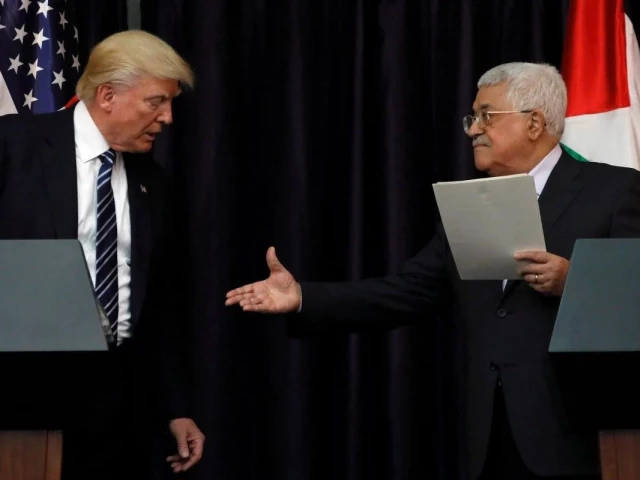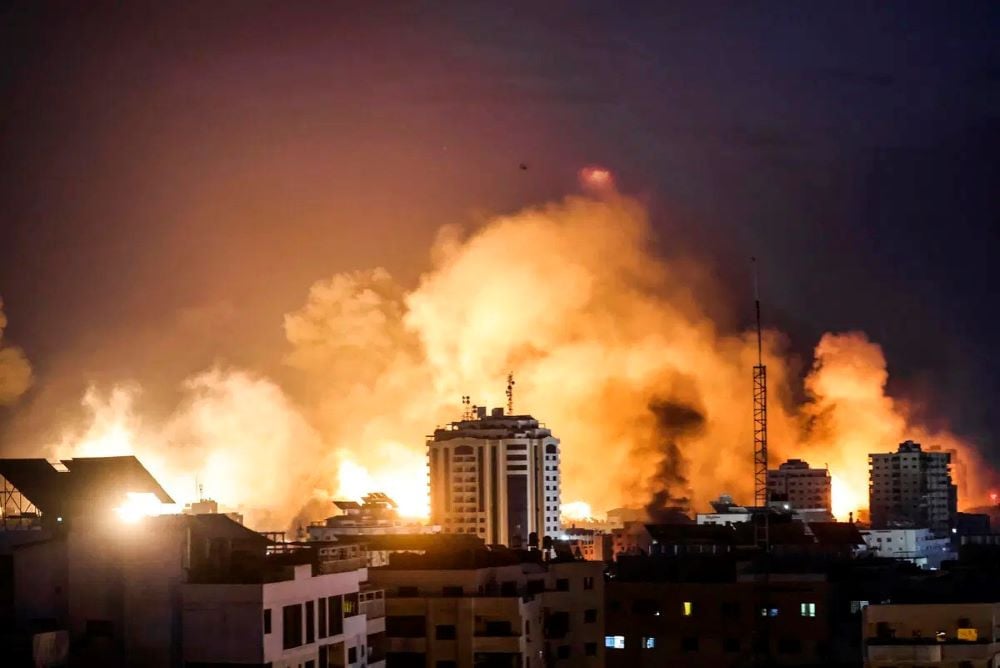Palestinian Authority seeks to reclaim influence in Gaza after ceasefire deal
Many countries, including Arab states, back PA control of Gaza, calling it the only practical option

The Palestinian Authority expects a significant role in post-war Gaza, even though President Donald Trump's plan sidelines it for now, and is banking on Arab support to secure its position despite Israeli objections, Palestinian officials say.
Gaza’s future governance has moved into focus with a ceasefire due to begin on Thursday, the first step in Trump’s bid to end two years of war. The next phase of the deal must tackle thorny issues, including demands that Islamist militant group Hamas disarm and end its rule in Gaza, from where it launched the October 7 attacks on Israel that ignited the war.
Hamas seized control of the coastal enclave from Palestinian Authority (PA) President Mahmoud Abbas in 2007. Trump’s proposal foresees an internationally supervised technocratic Palestinian committee taking over Gaza after the war. It requires the PA, based in the Israeli-occupied West Bank, to enact reforms before it can assume power.
Read More: Hamas, Israel sign ceasefire deal, rekindling hopes for peace in Gaza
While the PA has welcomed Trump’s efforts, its officials have privately expressed disappointment. An alternative plan drawn up by Saudi Arabia and France had emphasised its leading role in Gaza.
Abbas has declared his commitment to tackling corruption, holding elections, and implementing reforms requested by Western nations — steps that helped convince several of them to recognise Palestine in recent weeks.
Three senior Palestinian officials said they still expect the PA to be deeply involved in Gaza, noting its role in paying salaries to tens of thousands of civil servants and overseeing essential services, including education and electricity.
“We’re already there,” Prime Minister Mohammad Mustafa told Reuters. Mustafa, 71, was appointed by Abbas last year as part of a shake-up after then-US President Joe Biden pushed for a revitalised PA to take charge in post-war Gaza.
“It’s one thing to have some international, temporary arrangements to help and monitor things; it’s another to govern and get things done,” Mustafa said.
The officials cited the PA’s international standing as the Palestinians’ representative body, and the support of Arab states that want Gaza and the West Bank reunited to preserve hopes of Palestinian statehood.
Many countries, including Arab states, believe the PA must be “in charge” of Gaza because “they know that it’s the only practical way of doing things,” Mustafa said.
A spokesperson for Israeli Prime Minister Benjamin Netanyahu did not respond to a request for comment. The US State Department also did not immediately respond.
PM develops Gaza plans
Mustafa said international plans for Gaza’s governance were still evolving, though the basics were covered in the US roadmap. Gaza’s post-war transition will be the focus of an international meeting in Paris on Thursday.
Mustafa — a former World Bank official who once ran the Palestinians’ sovereign wealth fund — has been developing reconstruction plans since taking office 18 months ago. With Egypt’s support, he has scheduled a reconstruction conference a month after the ceasefire.
Updated World Bank estimates put Gaza’s reconstruction costs at $80 billion, up from $53 billion last October — four times the combined GDP of the West Bank and Gaza in 2022, according to the lender.
Arab states including Egypt, Jordan, and Qatar backed the Saudi-French plan, which called for a transitional administrative committee to be formed “under the umbrella of the PA” and foresaw the deployment of an international stabilisation mission at the PA’s invitation.
But Ghaith al-Omari, a senior fellow at the Washington Institute and former PA official, doubted the PA would have a major role in the initial phase of Trump’s deal.
Arab states may coordinate with the PA over appointments to the technocratic committee expected to rule Gaza, but without granting it a veto, he said.
“The reference to the PA, vague as it may be, gives it some sort of standing; it reinforces that Gaza and the West Bank are the same unit, which the Arabs wanted,” he said, adding he did not expect Arab states to expend political capital pushing for a stronger PA role early on.
The PA was set up in 1994 as a step toward statehood in the West Bank, Gaza, and East Jerusalem — a goal that has appeared increasingly elusive as Israel expands settlements and rules out Palestinian independence.
Also Read: Shehbaz hails Gaza ceasefire deal as ‘historic opportunity’ for lasting peace in Middle East
Trump’s plan foresees a temporary international stabilisation mission to train and support vetted Palestinian police, “in consultation with Jordan and Egypt.” Mustafa said the PA had already nominated some 5,500 Palestinians for a new Gaza police force being trained by Egypt, with a goal of training at least 10,000.
Sabry Saydam of Abbas’ Fatah movement told Reuters that Israel did not want the PA to return to Gaza to maintain the split between the two territories. “The Arab states support the presence of the PA (in Gaza),” he said, describing its Arab ties as stronger than ever.

Mustafa: Reform mustn’t be pretext for blocking statehood
Hamas officials have signalled support for a PA role, saying it should be the “reference” for a new technocratic committee to which it is prepared to hand authority, preferring this to foreign supervision.
Trump’s plan foresees former British Prime Minister Tony Blair as part of an international supervisory body — an idea that drew strong Palestinian criticism.
The failure to secure statehood has contributed to the PA’s declining standing among Palestinians, many of whom deem it corrupt. Opinion polls show Abbas, 89, is deeply unpopular; the PA last held elections in 2006.
Netanyahu has opposed its return to Gaza, accusing the PA of incitement, saying in a September 26 UN speech that Palestinian textbooks teach children “to hate Jews and destroy the Jewish state.”
Trump’s plan calls on the PA to complete reforms outlined in his 2020 peace plan, which described it as corrupt and promoting “a culture of incitement.” It also said Palestinian leaders must recognise Israel as “the Jewish state.”
Washington has also sought an end to PA payments to families of Palestinians killed or jailed by Israel, which critics call “pay to slay.” The PA says it has made progress, abolishing a law governing such payments and pledging to reform school curricula.
Abbas has ruled out recognising Israel as a Jewish state, noting that the Palestine Liberation Organisation recognised Israel in 1993 and that 21% of Israel’s population are Arabs.
Mustafa said the PA had made “very good progress” on institutional reforms. “We don’t want Israel to use this as a pretext for not proceeding with statehood, with reintegrating Gaza, with reconstruction of Gaza,” he said.



















COMMENTS
Comments are moderated and generally will be posted if they are on-topic and not abusive.
For more information, please see our Comments FAQ